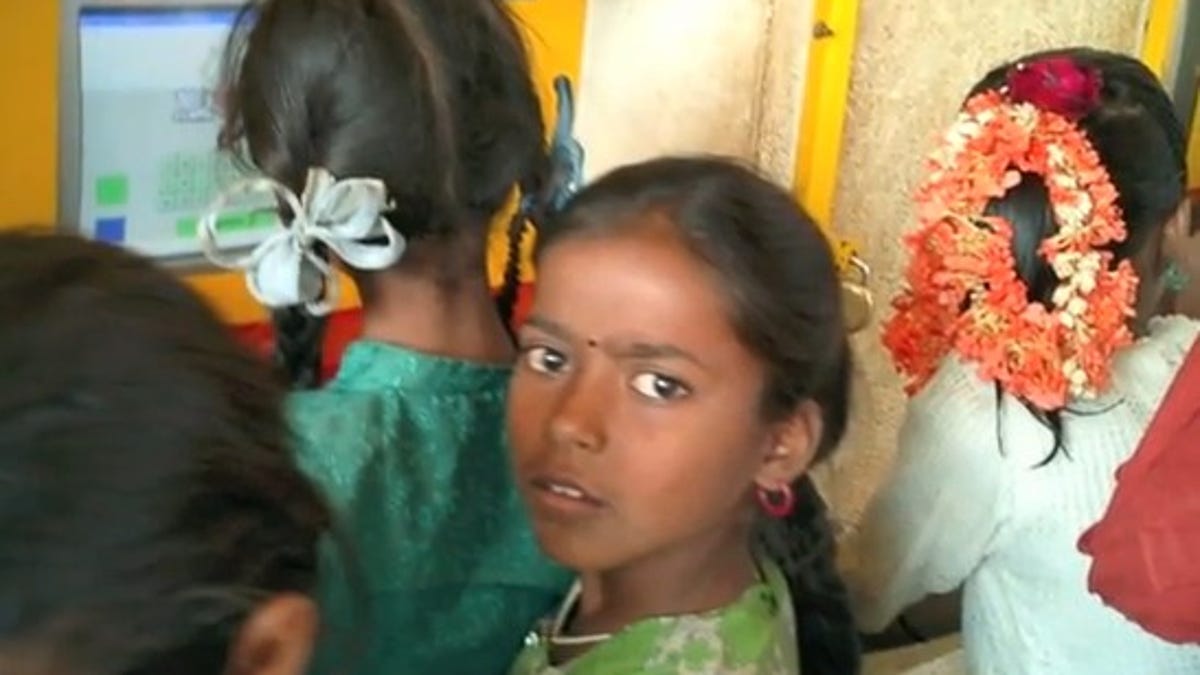India's first 'school in the cloud' aims to elevate kids
2013 TED Prize winner Sugata Mitra's School in the Cloud opens in New Delhi, letting kids teach themselves, and possibly ushering in "the end of schooling as we know it."

In 1999, Sugata Mitra tried something unusual in New Delhi, India: he placed a computer behind a clear plastic panel in one of the slums and just left it there.
Fully expecting it to be disassembled and sold for parts, the Newcastle University professor of educational technology came back eight hours later to a discovery that would change the course of his life and, quite possibly, the way we educate our children. A group of kids was using the computer to surf the Net in a language they didn't understand: English.
Thinking that maybe someone had coached the kids, Mitra repeated his experiment in a rural village 200 miles away where the chances of someone knowing how to surf the Internet (let alone use a computer) were slim. After two months, Mitra returned to find the kids working the computer as if it was second nature. According to a report in Wired, one of the kids told him: "You've given us a machine that only works in English, so we had to teach ourselves English."
That experience, which became known as the Hole in the Wall experiment, made Mitra realize that kids have an amazing capacity to learn on their own and that, in fact, they even seem to absorb information better when left to their natural curiosity. Mitra called this method of education SOLE ("self-organized learning environment"), and gave a talk about it at the popular idea-sharing conference TED.
That talk, embedded below, garnered him the $1 million TED Prize, which he has used to fund a series of learning labs he is calling "Schools in the Cloud." These use his concept of "minimally invasive education" to allow kids to ask and answer questions for themselves by tapping one another -- and online mentors and resources.
India's first School in the Cloud opens Tuesday in Kalkaji, New Delhi, just across the street from the site of the original Hole in the Wall experiment.
Suneeta Kulkarni, research director for the School in the Cloud project says: "Working in small groups, children can competently search for answers to 'big questions', drawing rational, logical conclusions. This is far ahead of what is expected of them in their school curriculum and a kind of learning activated by questions, not answers."
In addition to having access to Internet-connected computers, the School in the Cloud will also plug into another initiative started by Mitra. It's called Granny Cloud, and it allows retired teachers in the UK to provide guidance to students throughout their knowledge-seeking process. The teachers don't provide the answers to the kids, they simply offer support and occasional guidance via Skype.
Although this is the second School in the Cloud to open in the world (the first came online at a high school in Killingworth, England, in November of last year), it is the first one to go live in India, where four more are scheduled to open across the country from rural villages to city slums.
The hope is that the cloud classrooms will bolster learning in communities where there's a lack of access to education. "In India, we will be looking at two things" Mitra said, "whether the children can learn to read and also search the Internet accurately by themselves. If they can do this, then it's the end of schooling as we know it."

